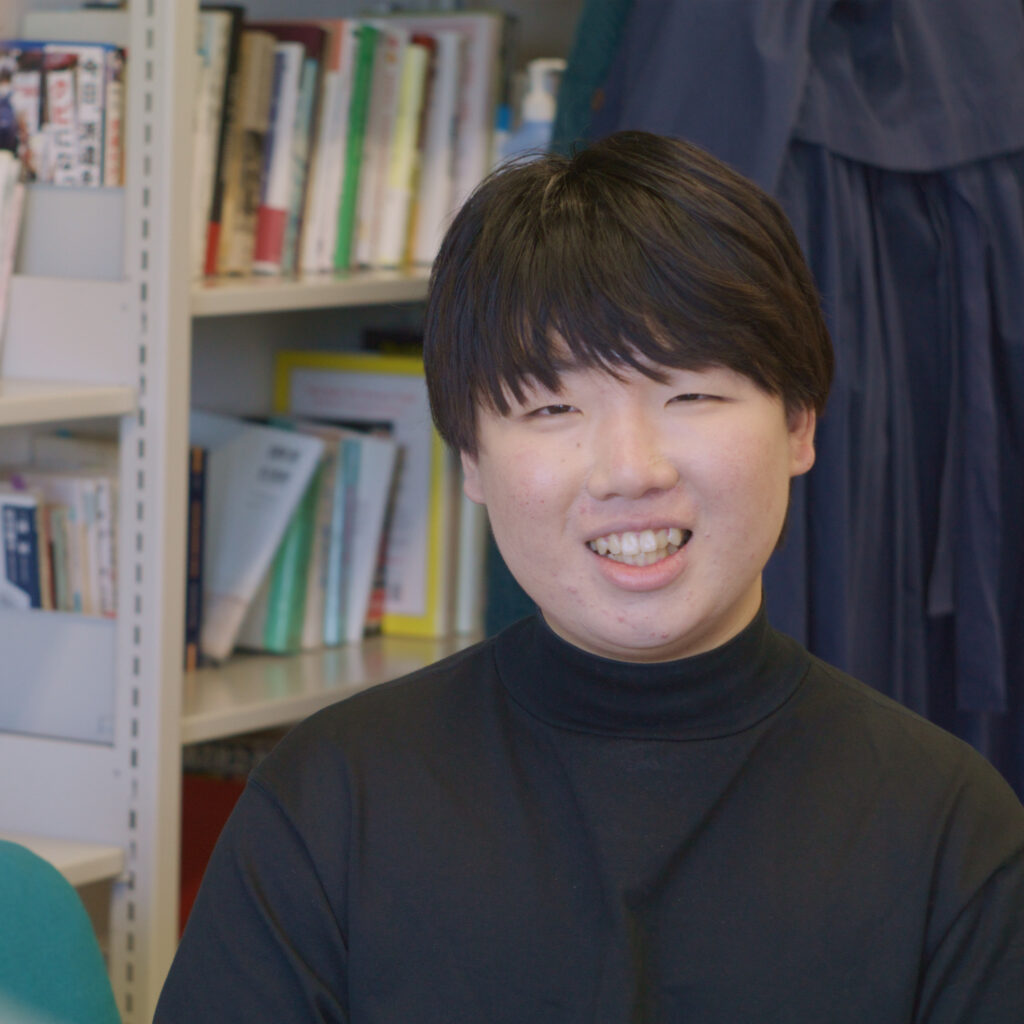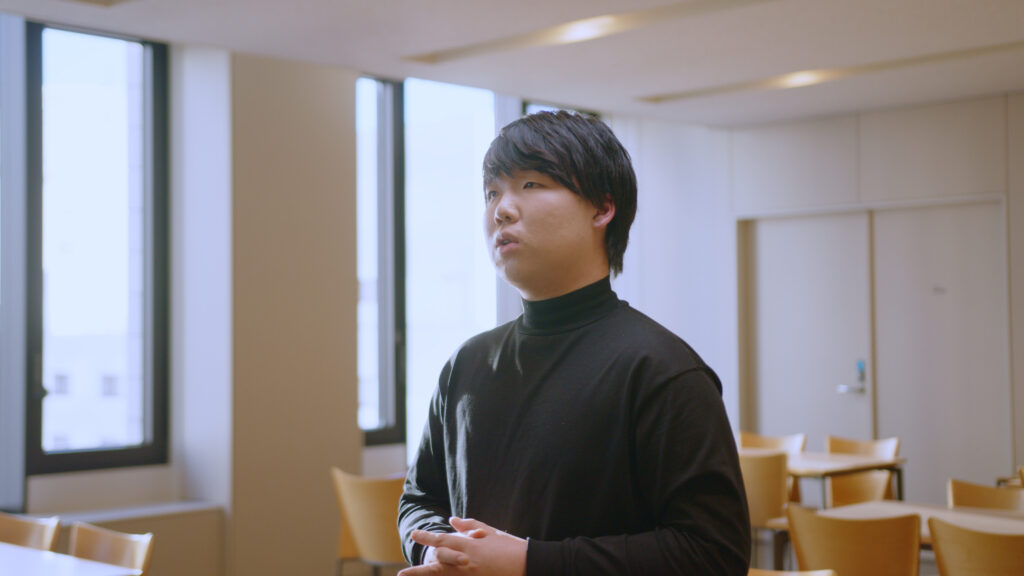Creating a world where children with diverse backgrounds can live comfortably

Yui Oyama, a fourth-year student in the Department of Social Services, says, “I would like to help build a society where children from mixed backgrounds can live comfortably.” As a Vietnamese-Japanese who has struggled with finding his own identity and place in society, his unique perspective has enabled him to realize his passion for helping others in similar situations.
Learning how to provide welfare by studying a wide range of subjects
I chose the Department of Social Services after visiting an orphanage when I was in high school. It was the first time I met people who were labeled as socially vulnerable, and I realized that these people were finding it difficult to live in the Japanese society of today. I felt that the general population was unaware of the hardships they faced, so I wanted to change that by spreading awareness.
There are many universities in Japan where one can study social service, but Sophia University was the one whose religious values matched my own and allowed me to pursue my studies from a more global perspective. The fact that I could take classes in other departments in line with my other interests was also a good fit for me, as I wanted to study education in order to support children in the future.
After entering the university, I was surprised at the number of students with liberal views and the existence of a halal cafeteria that supports the dietary restrictions of Muslim students. As a Vietnamese-Japanese, the students and professors at Sophia University welcomed me for who I am. They readily accepted my roots and my way of life as a minority, and simply saw me as a fellow human being. It’s a comfortable environment to be in when people truly want to get to know you on a deeper level.
In the Introduction to Human Sciences class, which all first-year students in the department are required to take, we learned about the specialties of each department in the Faculty of Human Sciences from a cross-sectional perspective. It was fascinating to realize that even if you look at human beings from the perspective of pedagogy or psychology, they are somehow all connected to welfare. In other undergraduate classes, I took Physiology and Ethics courses in the Philosophy Department. If I work with people in the future, I’m sure that I will come into contact with people who are terminally ill or in life-threatening situations, so I wanted to reaffirm my values and ethics.
Exchanging opinions with people from different fields of expertise in classes such as these, I was able to see points that I had not thought of myself as I gained a broader perspective. It was also a valuable experience for me to realize that when differences in thinking emerge among students, rather than dismissing or shutting them down, the discussions they create can lead to the forming of new opinions and the expansion of one’s own perspective.
Solving the problems of tomorrow without being restrained by the solutions of today

Until I enrolled in the program, I thought that the focus of the Department of Social Services was to provide support for the socially vulnerable. However, through my studies over the past four years, I have come to realize that the true aim is to build an inclusive society that includes the people involved. In other words, rather than a social system in which those on top decide what is right for those on the bottom, the goal is to create a social structure in which everyone is equal, and to create an environment where people help each other in a spirit of mutual respect and support.
Currently, I am studying Christian social welfare as part of my graduation thesis. In the future, I believe that this type of welfare will not only become more accepted in Japan, but also respected or even required.
I was introduced to this concept in my Theory of Social Welfare class, which left a strong impression on me. Conventional social service has a one-way structure that splits people into two groups: those who provide assistance, and those who receive it. However, in this class, students learn about a new system of welfare in which those who receive support are also the ones providing it to their peers, bringing about a sense of dignity and community that was lacking in traditional support systems.
Thanks to the widespread adoption of the internet, those requiring assistance have been given a platform to make their voices heard. The image that welfare is only for the socially vulnerable is changing, and this new way of providing assistance is leading the cause. It’s a fascinating field that is being developed and expanded by a Sophia University professor who has become a leading figure in the field.
Building a diverse and comfortable society for people of all cultural backgrounds
During my student career, both in university and high school, I have focused my efforts on creating a place for second-generation Vietnamese children living in Japan. Through my interactions with the children and adults I met, I realized that we all live our lives with the help of others.
As a second-generation Vietnamese myself, born to parents who came to Japan from Vietnam, I often feel that I don’t have a cultural identity. I’m not Japanese, but because I grew up in Japan, I’m not exactly Vietnamese, either. People around me see me as someone with a unique culture that has never existed before, and I am aware of that.
I believe that the number of children with similar cultural backgrounds will increase in both Japan and the world in the future, so my hope is to help build a society that makes it easier for us to live in, and to practice social service in a broader sense. To this end, I went to Vietnam in my sophomore year of college, where I experienced a strong sense of unity and camaraderie amongst the people there, thanks to our shared historical backgrounds and Christian faith.
Rather than working a single job for the rest of my life, I would like to find a career in which I can apply what I have learned during my time at university, along with the discoveries I have made about myself and my identity throughout my life. What kind of situation is most suitable for me? I am looking forward to finding out the answer to that.
*Please note that the content of this article is current as of November 2021